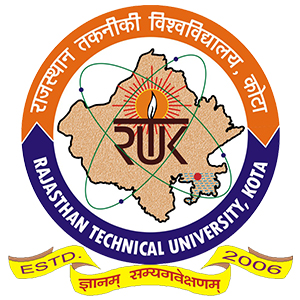Dr. Raunak Jangid
Professor & HODDr. Shripati Vyas
Assistant ProfessorDr. C P Jain
Associate ProfessorMr. Piyush Sharma
Assistant ProfessorDr. Megha Vyas
Assistant ProfessorMr. Shruti Bhadviya
Assistant ProfessorMr. Dharmendra Trivedi
Assistant ProfessorMr. Abhishek Sharma
Assistant Professor1. SOLAR STREET LIGHT IN GITS CAMPUS
Solar Street light installed in GITS campus: The final year students of B.Tech (EE) designed and installed solar powered street lights with automatic controls. The project employs dual electrification i.e. it uses both solar and auxiliary power supply from AC mains and consists of a transistor and sensor called Light Dependant Resistor (LDR) that automatically switches the street light ON and/or OFF.
The benefit of this design is two-fold; firstly it runs on renewable solar energy and secondly reduces power consumption by efficiently switching on/off lights in response to ambient light.
2. ELECTRICAL SOLAR VEHICLE 2018
The Objective: The prime motive is to construct a reliable, economical and an efficient solar-electric car for daily commute that runs on free renewable solar energy.
Concept: The noiseless, pollution-free electrically driven vehicle uses Photovoltaic cells to convert solar energy into electrical energy through quantum mechanical transitions and ensures zero emissions with minimum maintenance.
Benefit to society: This project addresses the need of the transportation industry to reduce pollution and emission of green-house gasses that has resulted in health hazards and global warming.
3. LINE FOLLOWER ROBOTS
The line follower robots are mobile machines designed to detect predefined path (either a black line on a white surface with high contrasts or an invisible magnetic field) and follow the route. These robots work on the principle of sensing the line with its infrared ray (IR) sensors installed under the robot. The data is then transmitted to the processor by specific transition buses. An 8-bit microcontroller from Atmega family is used to decide the path and directions to be followed by the line follower robot.
4. E-BIKE “BOLT”
GITS was the only academic institute among other participants from industry and start-ups from India to exhibit its e-bike ‘BOLT’; an eco-friendly bike exhibited in International Exhibition in Asia’s 2nd largest Tech Fest Cognizance at IIT, Roorkee held on 23rd – 25th March, 2018. We received phenomenal reviews from Industry experts and evaluators at IIT Roorkee.
The features of the Bike are ;
- Runs a distance of 120 kms on a single charge.
- Maximum achievable speed of 55KMs per hour
- Power and 100% torque torque for rapid acceleration
- Low repair and maintenance and saving on consumables which are limited to tyres, brake-pads and break hydraulic fluid.
- A soundless, environment friendly, runs on non-renewable fuel and emits no pollutants and
- Lightweight and aerodynamic design capable of replacing conventional motorcycles as a sustainable, environmentally safe product.
5. HYBRID POWER SYSTEM PROJECT
The first project of EIT “Power System” Components like inverter, charge controller, solar power generation etc were fabricated by the students themselves and the entire project was implemented in the following three stages-
- Electricity Generation using Solar panel of Rating 40W, 8 A and a Lead acid battery of rating 12V, 20Ah.
- Transmission: The entire transmission system was outlined and demonstrated in the project which included Insulators, fuses, jumper wires, isolators and transformer.
- Distribution: The distribution system consisting of equipment such as transformers, circuit breakers, and protective devices used by feeders and distributors to transmit electrical power from substation to the consumer end were elaborated through the transmission system.
6. SOLAR INVERTER SYSTEM
The power inverter transforms direct current (DC) electricity to alternating current (AC) electricity; it is commonly uses car batteries as a source for indoor power during power outages. This project was made by final year students Leela Lohar, Harshvardhan singh Jhala and Bhagwat singh Chundawat using Transistor, power diodes, regulator and several other electronics components. The 1KW, 12V. Inverter connected to the EIT lab for backup power supply can power to fan, tube-light, bulb, computer etc.
The earliest power inverters were complex electromechanical devices that used magnets and moving parts (including spring arms) to transduce direct current power into alternating current electricity. Modern power inverters employ oscillator circuits, which are made up of transistors and semiconductors rather than elaborate moving parts.






